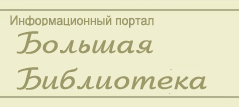Другое : Russian literature
Russian literature
Russian literature
Russian literature in the last half of the nineteenth
century provided an artistic medium for the discussion of political and social
issues that could not be addressed directly because of government restrictions.
The writers of this period shared important qualities: great attention to
realistic, detailed descriptions of everyday Russian life; the lifting of the
taboo on describing the unattractive side of life; and a satirical attitude
toward routines. Although varying widely in style, subject matter, and
viewpoint, these writers stimulated government bureaucrats, nobles, and
intellectuals to think about important social issues. This period of
literature, which became known as the Age of Realism, lasted from about
mid-century to 1905. The literature of the Age of Realism owed a great debt to
three authors and to a literary critic of the preceding half-century Aleksandr
Pushkin, Mikhail Lermontov, Nikolai Gogol, and Vissarion Belinsky. These
figures set a pattern for language, subject matter, and narrative techniques,
which before 1830 had been very poorly developed. The critic Belinsky became the
patron saint of the radical intelligentsia throughout the century.
Ivan Turgenev was successful at integrating social
concerns with true literary art. His "Hunter's Sketches" and
"Fathers and Sons" portrayed Russia's problems with great realism and
with enough artistry that these works have survived as classics. Many writers
of the period did not aim for social commentary, but the realism of their
portrayals nevertheless drew comment from radical critics. Such writers
included the novelist Ivan Goncharov, whose "Oblomov" is a very
negative portrayal of the provincial gentry, and the dramatist Aleksandr
Ostrovsky, whose plays uniformly condemned the bourgeoisie.
Above all the other writers stand two: Lev Tolstoy and
Fedor Dostoevsky, the greatest talents of the age. Their realistic style
transcended immediate social issues and explored universal issues such as
morality and the nature of life itself. Although Dostoevsky was sometimes drawn
into polemical satire, both writers kept the main body of their work above the
dominant social and political preoccupations of the 1860s and 1870s. Tolstoy's
"War and Peace" and "Anna Karenina" and Dostoevsky's
"Crime and Punishment" and "The Brothers Karamazov" have
endured as genuine classics because they drew the best from the Russian
realistic heritage while focusing on broad human questions. Although Tolstoy
continued to write into the twentieth century, he rejected his earlier style
and never again reached the level of his greatest works.
The literary careers of Tolstoy, Dostoevsky, and
Turgenev had all ended by 1881. Anton Chekhov, the major literary figure in the
last decades of the nineteenth century, contributed in two genres: short
stories and drama. Chekhov, a realist who examined not society as a whole but
the defects of individuals, produced a large volume of sometimes tragic,
sometimes comic, short stories and several outstanding plays, including
"The Cherry Orchard", a dramatic chronicling of the decay of a
Russian aristocratic family.
Vocabulary
artistic medium
- художественное средство
government restrictions - правительственные ограничения
subject matter - тема
government bureaucrats - государственные чиновники
owe
- быть обязанным
preceding - предшествующий
patron saint
- покровитель
negative portrayal - отрицательное изображение
provincial gentry - провинциальное дворянство
Questions
1. What did Russian literature provide in the last
half of the nineteenth century?
2. What did the Russian writers do to stimulate
government bureaucrats, nobles, and intellectuals to think about important
social issues?
3. What period of Russian literature is known as the
Age of Realism?
4. Who did the Age of Realism owe its debt to?
5. What was Ivan Turgenev successful at?
6. What did Ivan Goncharov and Aleksandr Ostrovsky depict?
7. Why do Lev Tolstoy and Fedor Dostoevsky stand above
all the other writers?
8. Who was the major literary figure in the last
decades of the nineteenth century?
9. What do Anton Chekhov's short stories and plays
reveal?
Список
литературы
Для подготовки
данной работы были использованы материалы с сайта http://nota.triwe.net/
|


